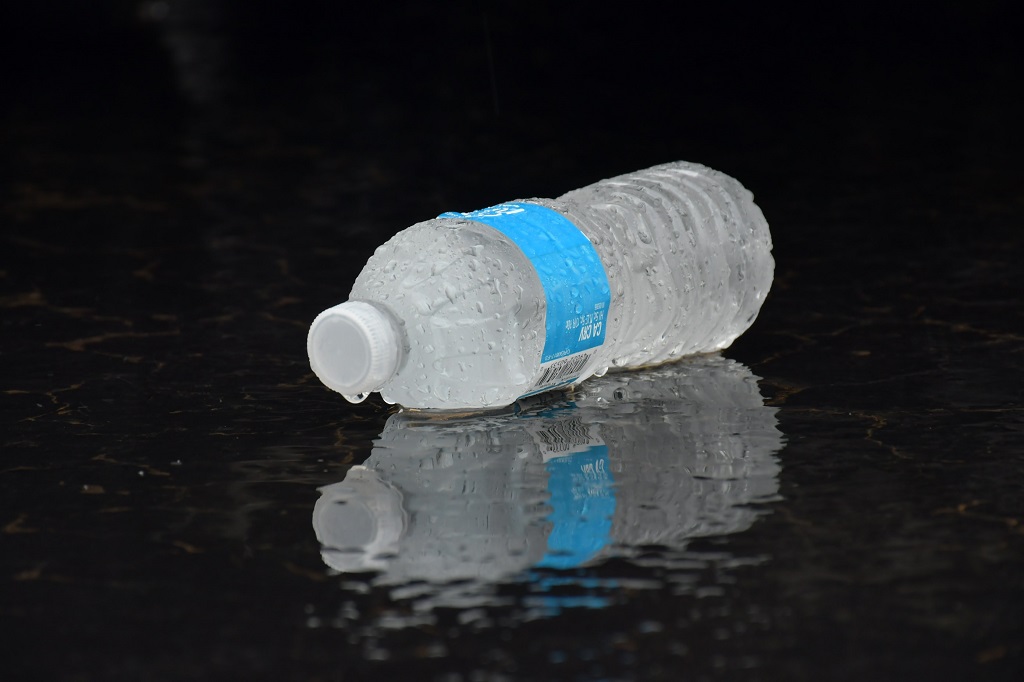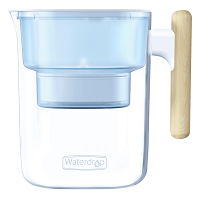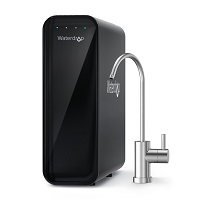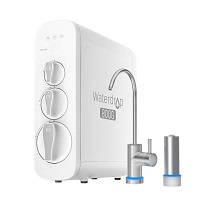With the improvement of living standards, people are more and more focused on living a healthy life. Water, as the most indispensable part of our life, has naturally also been valued by people. In order to drink safe and healthy water, many people choose bottled water, but is this really a good choice? Let’s follow this article to find out.
Why should I stop drinking bottled water?
There are some serious problems with bottled water that you should know about.
Environment Pollution
Most bottled water is packaged with disposable plastic bottles using plastic refined from petroleum. The process of producing plastic bottles itself consumes a huge amount of energy and creates an enormous carbon footprint. For each bottle of bottled water needs to consume 3 bottles of water and A quarter bottle of oil.
The recycling of disposable plastic bottles is another problem. In the U.S., people buy more than 29 billion water bottles in a year, but for every six bottles people buy, only one gets recycled. The not recycled plastic water bottles will end up in landfills, or even worse, in the ocean. About 80 percent of the disposable plastic water bottles are thrown away in landfills, which is equivalent to more than 2 million tons of discarded plastic bottles.
A single non recycle plastic bottle needs more than 1,000 years to decompose in nature. Scientific studies have shown that the toxins leach into the environment during the plastic decomposition process can lead to a great number of health problems, including reproductive issues and cancer. Bottled water is not only creating an environmental hazard but also taking up many valuable resources.
High Cost
The price of single bottled water might seem little, however, if you calculate the cost by the gallon, the average cost of bottled water is about $1.20 per gallon, which is 300 times more expensive than the cost of tap water. If you calculate the sales number with single bottles, the cost then rises up to $7.50 per gallon.
Health Risk
Based on a joint study conducted by the US Orb Media Group and the New York State University, the problem of PFAS is widespread in bottled water.
PFAS, which is short for Per- and Polyfluorinated substances, is a group of human-made chemicals resistant to water, oil, and heat. For bottled water, the chemical could leach out into the water inside over time.
PFAS, which is short for Per- and Polyfluorinated substances, is a group of human-made chemicals resistant to water, oil, and heat. For bottled water, the chemical could leach out into the water inside over time.
The diameter of a PFAS plastic particle is less than 5 mm. The study tested 250 bottles of bottled water from 11 well-known brands in 9 countries, and only 17 bottles of water were found to have no plastic particles. The study shows that plastic is already a substance that permeates our society, it permeates water and other very basic products that we consume on a daily basis.
The PFAS is known as the “forever chemical ” that would persist and accumulate in our environment, gradually go in and build up into human bodies. According to the EPA, long-term exposure to certain PFAS compounds can increase the risks of cholesterol, impact infant birth weights, affect our immune system, lead to diseases like cancer, thyroid hormone disruption, etc.
What is the best alternative to bottled water?
Tap water
Tap water is a good option as it is easy to obtain, and not harmful to the environment. Another big benefit is the low cost. It’s a fairly cheap and safe alternative compared to bottled water.
In fact, many people can't taste the difference between tap water and bottled water. This is because many bottled water brands advertised that the bottled water they sell is taken from natural mountain springs, but in fact, many of the bottled water sold on the markets are also filtered from tap water.
Yet, the safety of tap water has also been eagerly discussed over the years. The chlorine residue, heavy metal, and other impurities from the aging piping system bring additional water issues. It is important to learn how to treat tap water before drinking directly from the faucet.
Filtered water
Filtered water is a secured alternative to bottled water. Below are three popular filtration materials that can efficiently bring you safe drinking water.
Carbon block
An activated carbon filter that is made of natural coconut shell is considered the best carbon block for water purification. The working mechanism is through the adsorption method. The porous solid surface of the carbon block can adsorb and remove organic or toxic substances in the water so that the water can be purified. The filter functions like a sponge that attracts impurities and gets clean water to pass through.
Waterdrop Chubby Water Filter Pitcher
The Waterdrop Chubby water filter pitcher PT-04 is NSF 42 certified and NSF 372 certified for the reduction of chlorine, taste, odor. The filter uses an activated carbon filter that is made of natural coconut shell to effectively remove impurities and improve the water taste.
Ultrafiltration
Ultrafiltration membrane is a kind of microporous filtration membrane with a pore size range of 0.001-0.02 micron. Under certain pressure, water molecules and trace elements, and minerals with relatively small pore sizes can pass through the ultrafiltration membrane. In the meantime, macromolecular particles such as rust, colloids, bacteria, etc. cannot pass through and can only stay on one side of the membrane and eventually be discharged to purify the water.
Ultrafiltration Under Sink Water Filter System Waterdrop TSU-B
The Waterdrop Ultrafiltration system is an ideal choice for home use water filtration. Compare to other ultrafiltration systems on the market, the Waterdrop system adopts a finer UF membrane of 0.01-micron.
The system decreases chlorine and effectively adsorbs lead, chloramine, fluoride, heavy metals, VOCs, and much more. The zero wastewater and no water line connections are two more bonus points of this system.
The system decreases chlorine and effectively adsorbs lead, chloramine, fluoride, heavy metals, VOCs, and much more. The zero wastewater and no water line connections are two more bonus points of this system.
Reverse Osmosis
Similar to the ultrafiltration membrane, the reverse osmosis membrane is a semi-permeable membrane with a pore size of 0.0001 micron. It is by far the finest filtration accuracy.
When a certain pressure is applied to the water, water molecules and ionic mineral elements pass through the reverse osmosis membrane, while most of the inorganic salts (including heavy metals), organic matter, bacteria, and viruses that are dissolved in the water cannot pass through the reverse osmosis membrane. So that the permeated pure water and the impermeable concentrated water(wastewater) are separated.
When a certain pressure is applied to the water, water molecules and ionic mineral elements pass through the reverse osmosis membrane, while most of the inorganic salts (including heavy metals), organic matter, bacteria, and viruses that are dissolved in the water cannot pass through the reverse osmosis membrane. So that the permeated pure water and the impermeable concentrated water(wastewater) are separated.
Tankless RO System G3P800
The Waterdrop G3 P800 RO system is the ace among all the RO systems on the market. Not only does the G3 P800 reverse osmosis water filtration system feature a powerful tertiary filter, but it also has a scale inhibitor to prevent scale build-up.
The improved 7-layer RO membrane effectively reduces chlorine, heavy metals, and other pollutants present in water. It can also reduce over 90% of the total dissolved solids in water and bring you tasty drinking water. Check here to know about reverse osmosis system.
The improved 7-layer RO membrane effectively reduces chlorine, heavy metals, and other pollutants present in water. It can also reduce over 90% of the total dissolved solids in water and bring you tasty drinking water. Check here to know about reverse osmosis system.
Conclusion
Protecting the environment is the responsibility of every citizen on earth. If you want to ensure the safety of water, you can opt for filtered water to protect your health while protecting the environment and reducing the generation and disposal of plastic waste.






